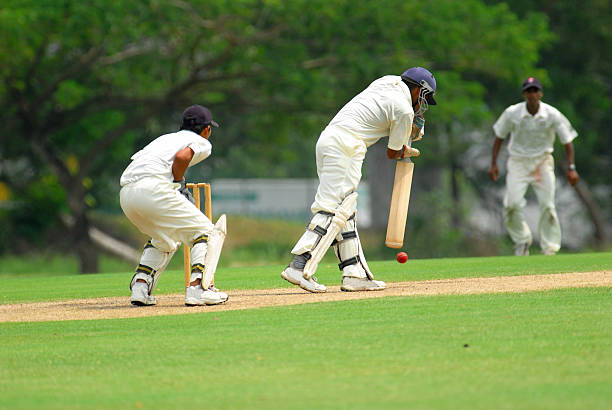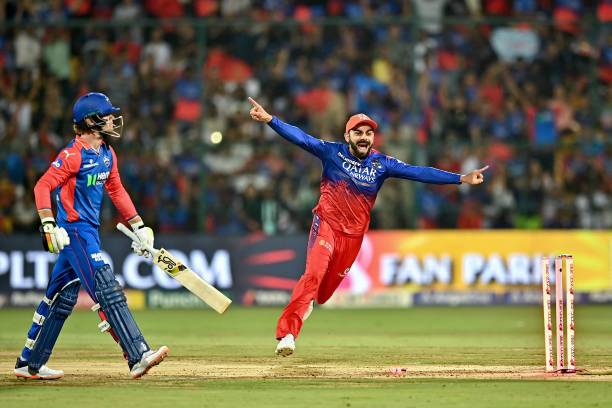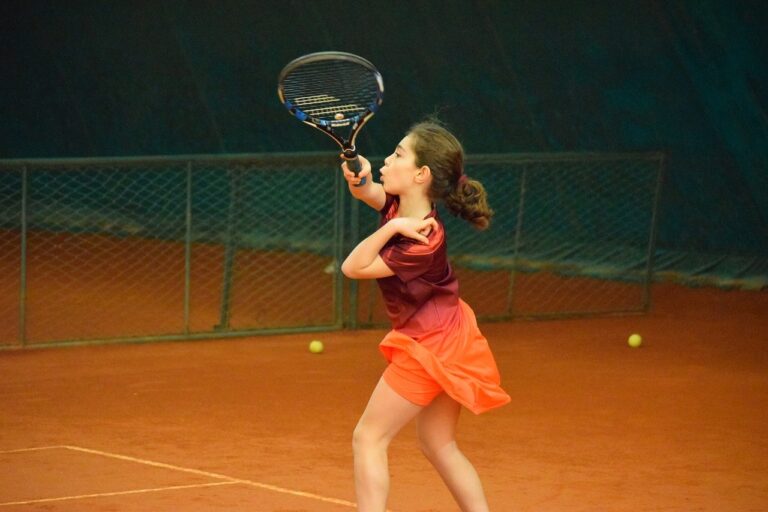The Role of Cultural Factors in Sports Betting Preferences
Play99exch, 11xplay: Sports betting preferences can be greatly shaped by cultural influencesas individuals from different backgrounds bring their unique beliefs and values to the activity. In some culturesbetting on sports may be viewed as a form of entertainment and social bondingwhile in others it could be seen as a way to showcase knowledge and expertise in a particular sport. These cultural norms and values play a significant role in determining how individuals approach and engage with sports betting.
Moreoverhistorical traditions and societal norms also play a crucial role in influencing sports betting preferences. For examplein some culturesthere may be longstanding customs or rituals associated with betting on sports that are passed down from generation to generation. These traditions can greatly impact the way individuals perceive and participate in sports betting activitiesas it becomes deeply ingrained in their cultural identity.
Different Cultural Perspectives on Sports Betting
When exploring sports betting from various cultural perspectivesit becomes evident that different societies have unique attitudes and approaches towards this activity. In some culturessports betting is deeply entrenched in societal norms and is often considered a form of entertainment that brings people together. On the contrarycertain cultures view sports betting with disdainassociating it with negative consequences such as addiction and financial ruin.
Moreovercultural perspectives on sports betting can also be influenced by historical factors and past experiences. For examplein cultures where gambling has a long history and is associated with traditions or ritualssports betting may be more widely accepted and even celebrated. Converselyin cultures where gambling has been outlawed or regulated strictly in the pastthere may be a more cautious or disapproving stance towards sports betting activities.
Impact of Tradition on Sports Betting Choices
Tradition plays a significant role in shaping sports betting choices across various cultures. In many societiesengaging in sports betting is not just about predicting outcomes but also about upholding long-standing customs and rituals. For instancein some countriescertain sports events are deeply intertwined with local traditions and folkloreinfluencing the types of bets placed and the significance attached to those wagers.
The impact of tradition on sports betting choices can also be seen in the way certain sporting events are viewed through a historical lens. People may place bets based on historical rivalries or past performancesdrawing on their cultural heritage to inform their betting decisions. This connection to the past adds a layer of meaning and nostalgia to sports bettingmaking it more than just a recreational activity but a continuation of time-honored customs and practices.
Cultural Norms and Values in Sports Betting
Sports betting preferences are heavily influenced by the cultural norms and values of different societies. In some culturesbetting on sports is seen as a way to showcase loyalty to a particular team or playerwhile in othersit is viewed as a form of entertainment or social bonding activity. These cultural norms play a significant role in shaping individuals’ attitudes towards sports betting and can vary greatly across different regions and communities.
Values such as competitivenesssuccessand risk-taking are often reflected in the sports betting choices of individuals from various cultural backgrounds. For somebetting on sports is a way to demonstrate their knowledge and expertise in a particular sportwhile for othersit is a means of seeking excitement and thrill. Understanding the cultural norms and values that underpin sports betting preferences is essential in recognizing the diversity and richness of this global phenomenon.
• In some culturessports betting is a way to showcase loyalty to a particular team or player
• In other culturesit is viewed as a form of entertainment or social bonding activity
• Values such as competitivenesssuccessand risk-taking are often reflected in sports betting choices
• For some individualssports betting is a way to demonstrate knowledge and expertise in a particular sport
• For othersit is a means of seeking excitement and thrill
Cultural Diversity in Sports Betting Preferences
Cultural diversity plays a significant role in shaping sports betting preferences around the world. Different cultures have unique valuestraditionsand beliefs that influence how individuals approach and engage in sports betting activities. For examplein some culturessports betting may be considered a form of entertainment and social bondingwhile in othersit may be viewed as taboo or immoral.
Moreovercultural differences can also impact the types of sports that individuals prefer to bet on. For instancein countries where soccer holds a prominent cultural significancethere may be a higher prevalence of soccer betting compared to regions where other sports like basketball or cricket are more popular. Understanding and respecting these cultural nuances is essential for operators and policymakers in the sports betting industry to effectively cater to diverse preferences and promote responsible gambling practices across different cultural backgrounds.
Cultural Beliefs and Superstitions in Sports Betting
Sports betting is not just a matter of chance in many cultures around the world. It is often intertwined with deep-rooted beliefs and superstitions that guide individual decisions. These cultural influences can range from wearing specific colors or clothing items believed to bring luckto performing rituals before placing a betall in the hopes of influencing the outcome of a sporting event.
In some culturescertain animals or symbols are seen as lucky or unluckyimpacting the choices made in sports betting. For exampleseeing a certain bird before placing a bet might be considered a sign of good luckwhile encountering a black cat could be seen as a bad omen. These beliefs and superstitions add an extra layer of complexity to sports bettingmaking it more than just a game of chance but a reflection of cultural values and practices.
Historical Context of Cultural Factors in Sports Betting
Sports betting has a rich historical context deeply intertwined with various cultural factors. Throughout historydifferent societies have engaged in betting on sports events as a form of entertainment and social bonding. Ancient civilizations such as the Greeks and Romans placed bets on athletic competitionsshowcasing the early roots of this practice within a cultural setting.
As time progressedsports betting continued to evolvereflecting the values and beliefs of the societies in which it was practiced. In medieval Europefor examplebetting on jousting tournaments was a common occurrenceserving as a testament to the influence of chivalry and honor on the wagering habits of the time. These historical perspectives offer valuable insights into how cultural factors have shaped and continue to shape sports betting preferences across the world.
Role of Religion in Shaping Sports Betting Preferences
Religion can play a significant role in shaping individuals’ sports betting preferences. For many peopletheir religious beliefs and practices influence the way they view gambling in general. In some religionsgamblingincluding sports bettingmay be strictly prohibited due to moral and ethical considerations. This prohibition can lead followers to avoid engaging in any form of bettingincluding on sports events.
On the other handsome religions may have a more lenient view towards sports bettingallowing their followers to participate in such activities as long as it is done responsibly. In these casesindividuals may still take into account their religious teachings when making betting decisionsconsidering factors such as moderation and avoiding excessive risk-taking. Moreovercertain religious celebrations and events may also impact sports betting preferencesas followers may be more inclined to place bets during specific religious holidays or ceremonies.
Cultural Celebrations and their Influence on Sports Betting
Sports betting preferences are significantly influenced by cultural celebrations around the world. These festive occasions often bring communities together to celebrateand many people incorporate sports betting as a form of entertainment during these festivities. In some culturescertain events or holidays are seen as auspicious times to place betsleading to an increase in betting activities during these periods.
Moreovercultural celebrations can also impact sports betting through the emotional connection that individuals feel to their cultural heritage during these times. The sense of pride and unity that comes with celebrating cultural traditions can translate into a stronger affinity towards certain sports teams or athletesinfluencing betting choices. This emotional attachment can sway individuals to place bets based on loyalty rather than logical analysisshowcasing the deep-rooted connection between cultural celebrations and sports betting preferences.
Globalization and its Effect on Cultural Factors in Sports Betting
Globalization has played a significant role in shaping cultural factors in sports betting. With the rise of online betting platforms and international sports events being broadcasted worldwidepeople from different cultures are now exposed to a variety of sports and betting opportunities. This exposure has led to the blending of traditional sports betting practices with new trends and preferencescreating a more diverse and dynamic landscape for bettors around the globe.
Furthermoreglobalization has facilitated the exchange of ideas and values between different culturesinfluencing the way individuals approach sports betting. As people from diverse cultural backgrounds interact and engage in sports betting activitiesthere is a sharing of beliefssuperstitionsand strategies that contribute to the collective evolution of the practice. This cross-cultural exchange not only enriches the sports betting experience but also highlights the interconnected nature of cultural factors in shaping betting preferences on a global scale.
How do cultural factors influence sports betting preferences?
Cultural factors such as traditionsvaluesbeliefsand superstitions can play a significant role in shaping an individual’s sports betting preferences.
Are there different cultural perspectives on sports betting?
Yesdifferent cultures may have varying views on sports bettingwith some embracing it as a form of entertainment and others viewing it as taboo.
How does tradition impact sports betting choices?
Tradition can heavily influence sports betting choices as individuals may follow family or community customs when placing bets.
What role do cultural norms and values play in sports betting?
Cultural norms and values can dictate what is considered acceptable or unacceptable in sports bettingshaping individuals’ behaviors and decisions.
How does cultural diversity impact sports betting preferences?
Cultural diversity can lead to a wide range of sports betting preferencesas individuals from different backgrounds may have unique approaches to betting.
Do cultural beliefs and superstitions affect sports betting?
Yescultural beliefs and superstitions can impact sports betting decisionswith some individuals relying on rituals or lucky charms for success.
What is the historical context of cultural factors in sports betting?
The historical context of cultural factors in sports betting can provide insights into how different traditions and practices have evolved over time.
How does religion shape sports betting preferences?
Religion can play a significant role in shaping sports betting preferenceswith some individuals adhering to religious teachings that may influence their betting choices.
Can cultural celebrations influence sports betting?
Yescultural celebrations can have an impact on sports betting trendsas individuals may be more inclined to place bets during festive occasions.
How has globalization affected cultural factors in sports betting?
Globalization has led to the exchange of ideas and practices across culturesinfluencing how individuals approach sports betting and shaping the industry on a global scale.







